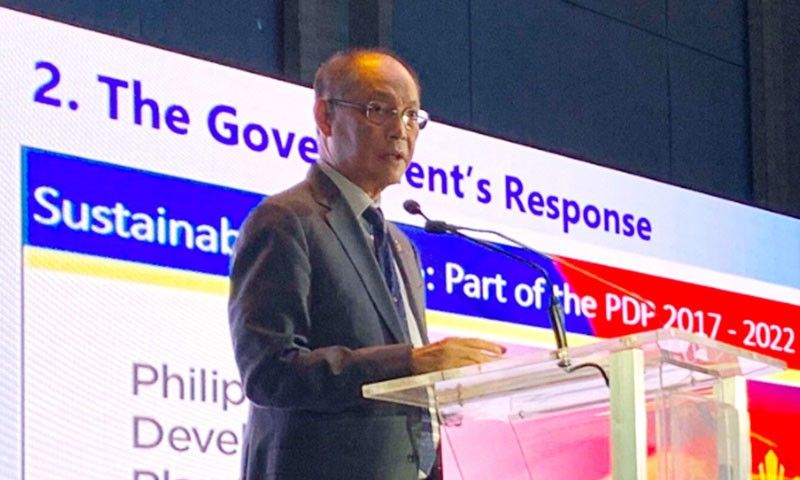BSP, government agencies ready roadmap for sustainable financing

MANILA,Philippines — The Bangko Sentral ng Pilpinas (BSP) and key government agencies are finalizing a roadmap to promote sustainable finance, facilitate investment in public infrastructure, and mobilize funds to finance green and sustainable projects.
BSP Governor Benjamin Diokno said in his speech during the 2nd Annual National Business Climate Action Summit that there is a need to adopt a “whole-of-country approach to address climate change and environmental challenges as well as to scale up promotion of green and sustainable finance.
“Aware of the magnitude of multi-faceted challenges surrounding sustainable financing, the BSP is supporting the “whole-of-country” approach in this important undertaking,” Diokno said.
Apart from the public sector, the BSP chief said there is a need to increase the awareness of the private sector, business enterprises and part of the households on the impact of climate and environment-related risks hopefully with the unceasing support by the development partners and academe.
According to Diokno, the Philippine Development Plan of 2017-2022 outlines the government’s climate-related and other environmental priorities.
Strategies include promotion of green technology innovations; institution of appropriate incentives to intensify the use of more energy efficient technologies; further development and use of renewable energy; promotion of climate-smart infrastructures and designs; promotion of low-carbon, energy-efficient and environment-friendly urban transport systems; and promotion of sustainable consumption and production.
Diokno pointed out the BSP has rolled out a two-pronged approach in promoting environmental, social and governance (ESG) principles via capacity building and awareness campaign as well as by mainstreaming ESG principles through the issuance of enabling regulations.
“We deem that this approach will increase the BSP and the banks’ understanding of the risks posed by environment degradation and climate change on the financial sector, enhance capacity to manage these risks, and increase banks’ awareness on the investment opportunities for green or sustainable projects before issuing regulatory expectations on sustainable finance,” he said.
He said financial regulation could be a useful tool to contribute to the achievement of national and international environmental and social objectives.
The ESG-related regulations will provide high level principles and broad expectations on the integration of ESG and sustainability principles in the corporate and risk governance frameworks as well as in the business strategies and operations of banks; provide more granular expectations in managing climate change and other environment-related risks in relation to credit, market, liquidity, and operational risks; and cover potential regulatory incentives.
Sustainable finance, Diokno said, is ultimately a public good since it could translate into profitable investments and at the same time attain environmental and social objectives when done right.
He said Philippine banks are getting more involved into green finance, issuing green or sustainability bonds in order to fund and refinance renewable energy and energy efficient projects, green buildings, and other green assets.
Apart from being a member of the Sustainable Banking Network, Alliance for Financial Inclusion and ASEAN, Diokno said the Philippines has earmarked $150 million to participate in the open-ended green bond fund launched by the Bank for International Settlements (BIS) as part of sustainable investing in reserve management.
- Latest


























